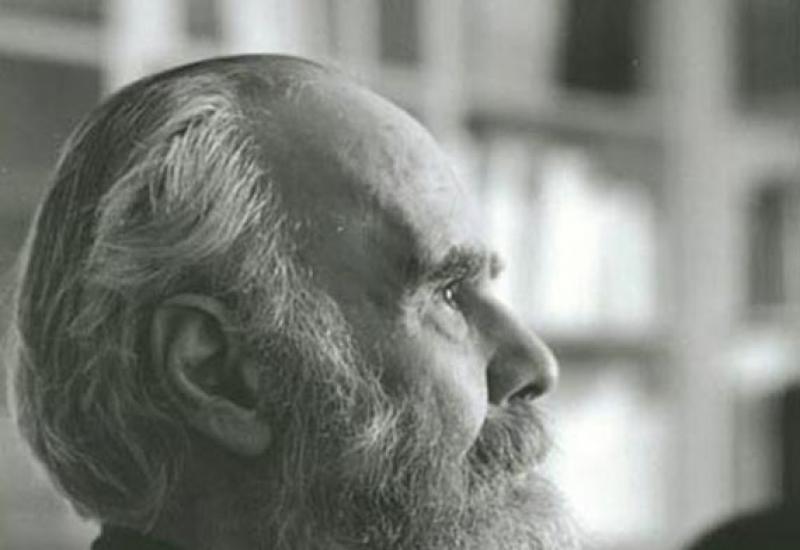Personality formation, the process of personality formation. Coursework: Social and psychological conditions for the formation of personality The process of formation of a person as a personality
Send your good work in the knowledge base is simple. Use the form below
Students, graduate students, young scientists who use the knowledge base in their studies and work will be very grateful to you.
Posted on http://www.allbest.ru/
1. Communication as an important factor in personality development
The formation of a person as an individual is a social process in the broadest sense. It is known that already an infant develops as a social being, for whom the environment acts not only as a condition for development, but also as its source. With the entire complex world of surrounding reality, the child enters into an infinite number of relationships, each of which develops and intertwines with other relationships in connection with the development of the child himself. And these relationships of the child with the surrounding reality are relationships “carried out with the help or through another person” (L. S. Vygotsky).
The child’s interaction with the environment and, first of all, with the social environment, the microenvironment, and his assimilation of the “culture created by mankind” (A. N. Leontiev) play a primary role in his mental development and his formation as a person.
The development of a child’s personality, the idea of his “I”, the degree of his self-confidence (doubt), and emotional well-being as a whole are determined to a large extent by a complex system of interaction between individual subsystems of his personal microenvironment (“child-to-adult”, “child-to-child” ). However, a child’s personal qualities are not simply “communicated” or “instilled” from the outside. He is not a passive object of external influences. Specifically human properties and personal qualities are formed only in the process of a child’s interaction with the environment, in the process of his own active activity. In the preschool years, the child masters new, rather complex types of activities (games, productive activities), enters into new forms of communication with adults (extra-situational-cognitive, extra-situational-personal).
Relationships with people around you, primarily with adults, rise to a new level. All this is of fundamental importance for those qualitative changes in the mental development of a child that occur in preschool and primary school age. Preschool age, according to domestic psychologists, is the period of actual formation of the psychological mechanisms of the individual. It is in the preschool years, as shown by special studies (A. N. Leontiev, A. V. Zaporozhets, D. B. Elkonin, L. I. Bozhovich, V. S. Mukhina, Z. V. Manuylenko, Ya. 3. Neverovich, V.K. Kotyrlo, etc.), personal mechanisms of behavior are formed, the first connections, relationships, nodes are established, which together form a qualitatively new higher unity of the subject - the unity of personality. Communication is understood as informational, emotional and objective interaction, in the process which interpersonal relationships are realized, manifested and formed. The role of communication in the formation of a child’s personality is extremely important.
In the process of communication, certain personal relationships develop, and the nature of the child’s relationships with others largely depends on what personal qualities will be formed in him. Children's relationships with adults can be, for example, friendly and hostile, trusting and mistrustful, interested or indifferent, calm and restless. What determines the attitude of children towards adults? What is it based on? These questions are still poorly researched. There are several approaches to solving them. For example, neo-psychoanalysts emphasize the decisive role in this process of the mother, who feeds the baby, thereby satisfying his “oral need” (J. Bowlby, R. Spitz). But how then can we explain the cases when children separated from their mother developed physically and mentally favorably? How to understand the facts described in the scientific literature about the deep attachment of infants and older children to an adult who only talked and played with the child, without providing any care for him? The psychoanalytic approach, which exaggerates the influence of the biological factor, the role of the very first stage of life on mental development, does not answer these questions.
So, throughout childhood, the child comes into various kinds of contacts with adults, and the content of his communication with others changes. It is communication and its content that is one of the most important points that determine the development of children’s relationship with adults. Most of all, the child is satisfied with the content of communication for which he already has a need. When the content of communication corresponds to the level of need, the child develops disposition and affection for the adult, but in case of inconsistency (lead or lag), the degree of attachment of the child to the adult decreases.
2. The influence of the family microenvironment on the development of the child’s personality
child personality
The closest social environment into which a child finds himself is, as a rule, the family. Its influence on the formation of the personality of a growing person is enormous. The special significance of the family microenvironment is explained to a large extent by the fact that the child’s independence is relative, his well-being and life itself depend on the care and help of the adults raising him. Influences of this kind, such as approval and disapproval, especially from parents, acquire such a motivating force during this period of childhood that they serve as a regulator of behavior and a stimulus for mental development.
What is the influence of the family atmosphere on the formation of certain personality traits of children, some features of their behavior? Both psychologists and psychotherapists have studied this issue.
In every family, a special individual relationship develops between the child and the parents, and at the same time, something in common can be found in them. Depending on which ways of leadership and relationships with the child prevail among parents, they are conventionally divided into several groups, but most often into “Democratic” and “authoritarian” (“controlled”).
The “democratic” form of family influence on children is characterized by a tendency to allow a lot of things, great contact with the child, trust in him, respect, the desire of parents to avoid arbitrary decisions, an explanation of the rules adopted in the family, meaningful answers to children’s questions that satisfy their curiosity. An “authoritarian” atmosphere in a family is characterized by a large number of restrictions on children. The predominant leadership style of “dictator” parents is one based on the inviolability of their own authority and unquestioning submission; communication to clarify the rules of behavior is reduced to a minimum.
A difference was noted in the personal qualities in the behavior of children of “authoritarian” and “democratic” parents. Children from “democratic” families more often showed a desire for creativity, initiative, a tendency towards leadership, non-conformism (denial of conformity), and showed more emotionality in their social relationships.
Does the size and composition of the family influence the formation of a child’s personality? Does the difference (unity) affect the approach to the child? In studies conducted under the leadership of T. A. Repina (1979), a direct connection was found between the number of adults raising a child and such qualities as the ability to show sympathy for others, lack of aggressiveness and general dependence, organizational skills, independence, perseverance . If grandparents, along with their parents, take part in raising a child, he or she is more sympathetic to others, more friendly to people, but at the same time less independent, less persistent, and has less organizational skills.
The role and influence of each family member on development is determined to a large extent by how the child perceives and evaluates each of them, what idea and attitude he has towards each family member. A child's affection and feelings for relatives are expressed in many ways - they are expressed in the desire to play, tinker with them, and in the demand for the mother's company when he is sick or frightened, in a boat given to his father, fashioned with his own hands, and in a bouquet of flowers collected for his grandmother. , in the caresses, tenderness of the child, his empathy for the joys and sorrows of his parents. These feelings are also in the drawings and statements of the children.
Adult family members should help create the most favorable family atmosphere in general for the mental development of the child. The teacher should be the main assistant in this difficult process.
3. The child and the “children’s society”
Communication with other children is important for the mental development of a child. Interest in a child's peers awakens genetically somewhat later than in adults - at the end of the first year of life. However, it gradually becomes more urgent, especially in the preschool years. One of the decisive factors in the social education of children, noted A.P. Usova, is the society of children itself, within which a person is formed as a social being. Undoubtedly, we can talk about some kind of amateur forms in which such a society can take shape and develop even at the early stages of children’s social development. (...)
Of interest in this regard is the study by V. Kislovskaya, conducted using the projective technique. The children were shown pictures depicting various situations: the child’s relationships with children and the teacher in kindergarten, and with family members at home. The proposed situations could have a double emotional meaning. It was contained in the facial expression of the main character of the picture, which was given in contours. The child was offered a cheerful and sad image of a face; he could insert any of them, which he found most suitable for the given situation. Identifying themselves to a large extent with the hero of the picture, some children endowed him with a cheerful face, others with a sad face, and explained their choice differently depending on what experiences they themselves experienced associated with visiting kindergarten, with the emotional climate there: “ She’s glad she came to kindergarten” (puts on a “cheerful face”); “She loves kindergarten” (substitutes a “cheerful face”); “Katya has probably already arrived, we are friends with her”; “She was sad (puts on a “sad face”), no one wanted to play with her, and then she didn’t want to play with them herself”; “I’ll give the girl a sad face, she doesn’t like to go to kindergarten, but her mother brought her and said that she needs to go to work” (based on materials from V. Kislovskaya).
An emotionally positive attitude towards peers, the kindergarten, and the teacher was expressed, as a rule, by children occupying a favorable position in the system of personal relationships in the group. The negative attitude is those in whose group there was an unfavorable emotional climate.
How does a child feel if only one person in the group likes him? It turns out that it is of great importance whether it is mutual or one-sided sympathy. If it is mutual, this is enough for the child to experience an emotionally positive attitude towards his peers, the group and even the kindergarten as a whole. If the sympathy is one-sided, undivided, the child may acutely experience his situation, the unsatisfied need for selective communication.
His brothers and sisters have a significant influence on the development of a child’s personality. This is evidenced by the experience of education in large families and special studies. Brothers and sisters are part of the child’s immediate microenvironment and occupy one of the central places in it. Not without reason, some researchers come to the conclusion that as the family constellation increases, the influence of parents decreases and the influence of brothers and sisters increases. Their relationships are often colored with special affection and love. Surrounded by older brothers and sisters, the child feels emotionally protected, and the role of an older brother or sister brings a lot of pleasure, provides great opportunities to demonstrate their skills, knowledge, good feelings, guardianship, patronage, and organizational abilities: “My brother gives me a sled ride. He is strong and always stands up for me” (Oleg); “I love brother Valera. He listens to my fairy tales, I often play with him” (Tanya).
So, in preschool age, a child develops quite complex and diverse types of relationships with other children, which largely determine the development of his personality. In identifying the system of interpersonal relationships of children in a group/class, the educator and teacher are helped by the presence of psychological and socio-psychological observation, as well as special research methods (conversations > sociometric methods, choice in action, method of one-time sections, etc.). It is important to study these relationships in order to purposefully shape them in order to create a favorable emotional climate for each child in the group.
4. The influence of an adult on the formation of a child’s personality
A special place in the development of a child’s personality in preschool and primary school age belongs to the people around him. In early preschool age, with their help, children become familiar with some rules of communication (“you can’t fight”, “you can’t shout”, “you can’t take away from a friend”, “you need to politely ask a friend”, “you need to thank him for his help”, etc. .).
The older a preschooler gets, the more and more complex rules of relationships he learns. Mastering them occurs with greater difficulty than mastering everyday rules. By the end of preschool age, the child also learns, with the help of adults, a considerable number of rules related to work and educational activities.
Mastering the rules of behavior is a gradual process. V. A. Gorbacheva, who studied this process in detail, characterizes it as follows: “...Children of younger childhood initially perceive all the rules as private, specific requirements of the teacher, directed only to themselves. In the course of the general development of the child, in the process of educational work with him, due to repeated perception of the same requirements for himself and other children and compliance with these rules, children, as they establish connections with friends, begin to master the rule as a rule, i.e. as generalized requirement..."
Play, as the leading activity of children and competent guidance from adults, plays a particularly important role in the formation of interpersonal relationships among children in a group.
The influence of an adult on the formation of a child’s personality is also carried out in the process of other types of activities - drawing, designing, sculpting, appliqué, performing work and educational tasks. In the process of productive labor and educational activities, children develop a focus on obtaining a result approved by adults and peers (made toys for kids, grew flowers as a gift for mothers, sang a beautiful song, learned to read syllables, etc.), social orientation, cognitive motives, strong-willed and other valuable personal qualities are formed.
5. Prevention of juvenile crimes
In connection with the negative trends in juvenile delinquency, attempts have been made more than once at the state level to find ways to comprehensively solve the problems of its prevention. In 1964 and 1977 Large-scale measures were taken to improve the fight against juvenile delinquency and to eliminate the causes and conditions conducive to this phenomenon.
The reasons for the increase in juvenile delinquency, in turn, included: unsatisfactory conditions for raising children in many families; poor assistance to parents in the pedagogical education of children and adolescents; unsatisfactory conditions for their upbringing in many schools and other children's institutions, poor training of personnel conducting educational work in these institutions; unsatisfactory conditions of education in out-of-school institutions; unsatisfactory work of commissions on juvenile affairs; formalism in the activities of many public organizations designed to assist families, schools, child care institutions, cultural and other institutions in the education of children and adolescents, as well as the police, prosecutor's office and court in matters of preventing juvenile delinquency; shortcomings in the work of law enforcement agencies in this area of their activity.
It was not possible to cope with the above-mentioned causes and conditions of juvenile delinquency either in those years or today. This is largely due to the fact that numerous legal acts and well-developed normative solutions to combat neglect and delinquency of children and adolescents remained on paper. Their implementation was not properly monitored, the prescribed preventive measures were not provided with the necessary personnel, material and other resources. Measures are also being taken to significantly change the work with juvenile offenders in the conditions of educational labor colonies where they are serving their sentences.
In total, there are 59 educational and labor colonies in the Russian Federation, located in 47 regions of the country. In 1992, they housed 20.5 thousand convicted minors, including 1,020 girls.
The absence of such institutions in 9 republics and 16 regions of the Russian Federation entails a significant number of transfers of minors sentenced to imprisonment (13 thousand adolescents annually). They lose the opportunity to meet relatives, study in their native language, observe the established way of life, national and religious traditions. Currently, opportunities are being sought to disaggregate the colonies and change their locations in order to eliminate these negative circumstances that contribute to the relapse of crimes. A new scheme for the functioning of colonies for minors has been developed and is being implemented, which includes:
A site for housing minors during the investigation and preliminary investigation (pretrial detention center for minors) in regional, regional and republican centers;
An educational colony itself with a regulated procedure for changing the conditions of detention of convicts depending on the behavior and results of correction;
A section of resocialization and adaptation to living conditions in freedom, providing for a semi-free regime;
Educational and industrial complex providing general education, vocational training and labor education;
psychological service, including rooms for socio-pedagogical diagnostics, vocational guidance, and psychological relief.
The creation of such educational colonies should contribute to a more complete implementation of the basic principles enshrined at the international level in the minimum standard rules for the treatment of prisoners, designed to provide the necessary conditions for the correction of criminals, as well as the prevention of crimes for those who think about them.
So, throughout childhood, the child comes into various kinds of contacts with adults, and the content of his communication with others changes. It is communication and its content that is one of the most important points that determine the development of children’s relationship with adults. Most of all, the child is satisfied with the content of communication for which he already has a need. When the content of communication corresponds to the level of need, the child develops disposition and affection for the adult, but in case of inconsistency (lead or lag), the degree of attachment of the child to the adult decreases. And also, Adult family members should help create the most favorable family atmosphere in general for the mental development of the child. The teacher should be the main assistant in this difficult process.
Another important factor is that in preschool age a child develops quite complex and diverse types of relationships with other children, which largely determine the development of his personality. In identifying the system of interpersonal relationships of children in a group/class, the educator and teacher are helped by the presence of psychological and socio-psychological observation, as well as special research methods (conversations > sociometric methods, choice in action, method of one-time sections, etc.). It is important to study these relationships in order to purposefully shape them in order to create a favorable emotional climate for each child in the group. Sources, literature used:
Well, play plays a particularly important role in the formation of interpersonal relationships among children in a group, as the leading activity of children, and competent guidance of it by adults.
Sources, literature used:
1. Bozhovich L.I. Problems of personality formation: Edited by D.I. Feldshtein / Introductory article by D.I. Feldstein. 2nd ed. M.: Publishing house "Institute of Practical Psychology", Voronezh: NPO "MODEK", 1997. - 352 p.
2. Mukhina V.S. Psychology of childhood and adolescence. Textbook for students of psychological and pedagogical faculties of universities. - M.: Institute of Practical Psychology, 1998. - 488 p.
3. Feldshtein D.I. Psychology of growing up: structural and content characteristics of the process of personality development: Selected works. - M.: Moscow Psychological and Social Institute: Flint, 1999. - 672 p.
Posted on Allbest.ru
Similar documents
Aspects of mother's influence on personality development. Maternal concept in science. Factors in child development. Stages of child personality development. Deprivations, their impact on the development of a child’s personality. Formation of a conscious understanding of the role of the mother in the life of the child.
thesis, added 06/23/2015
Features of the formation and development of a child’s personality. Basic functions of the family. An empirical study of the influence of the family on the formation of the personality of a preschool child. The positive impact of friendly family relationships on a child’s personality.
course work, added 07/03/2014
Environment as a factor in the formation of a teenager's personality. Characteristics of adolescence. Conditions for personality development. Communication and its influence on the development of a teenager’s personality. The influence of schooling and communication with teachers on the development of a teenager.
course work, added 06/05/2009
Characteristics, conditions and principles of family education. Family as a leading factor in the formation of a child’s personality. The problem of single-parent families and unhappy children. The essence of parent-child relationships and the influence of relationships between parents on the development of the child.
course work, added 08/05/2009
The concept of family in modern society. The role of the family in the life of a child and his formation as a person. Stages of human socialization. The influence of parents' behavior on their children's worldview. Favorable conditions for the formation of valuable personality traits.
abstract, added 08/06/2014
Family relationships as the fundamental basis of human development and personal socialization. Child personality development in scientific psychology. Situational and metaphorical nature of everyday knowledge. The influence of family factors of scientific and everyday psychology on the development of a child.
course work, added 04/24/2011
Definition of the concept of "incomplete family", their types and sources of their formation. Features of the formation of a child’s personality in an incomplete family. Fatherhood in changing sociocultural conditions. Correlational study of the role of the father in the formation of the child’s personality.
thesis, added 12/15/2009
The problem of personality development. Personality and its structure. Development of a child’s personality in older preschool age. Personality development in gaming activities. Activities of preschool children. Self-esteem of a child of senior preschool age.
course work, added 06/04/2002
Conditions for the development of a preschool child: increasing demands on his behavior; compliance with the norms of public morality; ability to organize behavior. Game as a leading activity for preschool children. Formation of the personality of a hearing-impaired child.
course work, added 10/31/2012
Modern concepts of psychological approaches to the study of personality. Family as a functional system. Features of the formation of a child’s personality in the family. Factors in the formation of the climate of family relations and a favorable socio-psychological situation.
Where does our experience, our abilities and capabilities, our “know”, “can”, “want” come from? Our experience has only four sources:
- The biological organism and its innate experience;
- Learning through combinational reflexes;
- The man taught himself;
- A person was taught by other people.
In accordance with different understandings of personality, different researchers have seen differently how personality is formed from these sources.
There have long been debates about what is more important for the formation of personality: the biological nature of a person or the social environment surrounding him, human culture. The psychology of the Soviet period, represented primarily by the Vygodsky school, was based on the priority of the socio-cultural environment. L.S. Vygodsky believed that the social environment is not just one of the factors, but the main source of personal development. The child develops in pairs with adults, acquiring culture through them: tools and signs, skills and knowledge. Accordingly, according to Vygodsky, in order to study a person’s consciousness, you do not need to peer into this consciousness, you just need to understand and explore what has been put into a person. Everything internal is the external folded inward. Thinking does not develop itself, but is formed from the outside. The zone of proximal development is determined by the art of the adult and the framework of the natural maturation of the child’s body.
A clear exponent of the opposite point of view was humanistic psychology, primarily represented by Carl Rogers. According to Rogers, the biological nature of man is characterized by a tendency to grow and develop, just as the seed of a plant has a tendency to grow and develop. In human biology there is an orientation towards positivity, constructiveness, maturity and socialization. For Carl Rogers, everything a person needs for development is in his body; he needs little from society, essentially just not to interfere and support. As for the metaphor of the seed from which development unfolds, then, according to Rogers, a person has only one.
The term “personality formation” has a double meaning: 1) “personality formation” as its development, its process and result; 2) “personality formation” as its purposeful upbringing (if one can say so, “molding”, “molding”, “designing”, “sculpting”, etc.). See→
In this article, personality formation is considered as the acquisition by a child of personality traits (forms), and the acquisition of a real form by a person. Different specialists see this process in their own way.
Within the framework of the behavioral and role approach, the formation of a personality and its achievement of social maturity can be represented as its mastery of certain personal and social roles. See→
In the activity approach, it is believed that the formation of personality occurs through its double birth. In the first birth, immediate impulses begin to obey social norms; in the second, a person (adolescent) begins to realize and subordinate his motives. It is no longer only motives that control him, but he can also control his own motives. See→
The development of a child is determined not only by his soul and his body. A child's development is determined by the adults who are around him.
A child does not grow up in an airless space, and regardless of its soil and regardless of its seeds, attentive gardeners look after its soil (well, they can look after it), changing its composition. Attentive gardeners have the opportunity to plant crop seeds in the soil at the right time, and even if they are overgrown with burdocks, the soil is weeded.
Personality formation is always a process divided between a child and an adult. The smaller the role of the cultural adult, the greater the role of the body. The stronger the cultural, educational influence of an adult, the greater the influence of the soul - first the adult’s soul, and then, when it saturates the soil of the child, this is also the influence of the child’s soul.
The first sprouts of personality are the stubbornness of the baby “I myself”, the next steps are the assertion of independence by the teenager and the development of independence in youth, later – growing up, and all the way – the development of reason and will.
Will
The formation of personality occurs through the development of the will and is expressed through the development of the will. One helps the other. See→
Maternal love and personality formation
Both in the near-psychological environment and in the psychological community itself, there is often a belief that without maternal love a full-fledged personality cannot be formed. There is no such data in scientifically oriented psychology. On the contrary, it is easy to give the opposite data, when a child grew up without a mother or without maternal love, but grew into a developed, full-fledged person. Cm.
A person’s personal qualities manifest themselves exclusively during socialization, that is, in the process of carrying out common activities with other individuals. Otherwise, improving his spiritual, mental and emotional self-development is impossible. In addition, during socialization, the formation of each person’s environment occurs.
The present reality in which an individual develops is called the environment. In addition, various external circumstances influence the improvement of personality: family, social, school and geographical. Scientists, when discussing the impact of the environment on the development of personality, in most cases mean the home and social microclimate. The first factor corresponds to the immediate environment (family, acquaintances, relatives, etc.), and the second – to the distant environment (material well-being, political system in the country, interactions in society, etc.).
The home environment has a great influence on a person’s self-improvement, starting from his birth. It is there that the first and most important years necessary for the formation of a person pass. Family relationships determine interests, needs, values and views on certain situations. In addition, the initial conditions for improving the personal qualities of each individual are laid there.
The process of interaction between a person and his environment is called socialization. This term appeared in American psychology and initially implied the relationship through which an individual adapted to his environment. Based on this, adaptation is the initial component of socialization.
The main goal of society is to maintain the social environment in optimal condition. At the same time, it constantly forms stereotypes and standards, which it tries to maintain at the proper level. In order for a person to develop normally, it is necessary to adhere to these rules, since otherwise the process of socialization can develop for a very long time or stop completely. However, thanks to the principles of freedom and independence inherent in each individual, each individual must form his own opinion on any situation. Thus, individuality is formed, which is the main driving factor in the development of both each individual and the entire society.

As a result, the full disclosure of the concept of socialization occurs in the totality of the following factors: independent regulation, adaptation, development, integration, as well as dialectical unity. The more of these components influence an individual, the faster he becomes a person.
Socialization consists of several stages, during which certain tasks are solved. Modern psychology subdivides these stages depending on the individual's participation in work activity, as well as on how he relates to it.
Factors influencing personal improvement
In sociology, factors are usually called certain circumstances that create favorable conditions for socialization. A.V.Mudrik formulated the basic principles and identified four stages of specialization:
- microfactors - social conditions that influence each individual, without exception: family, home atmosphere, peer group in a technical school or university, various organizations in which an individual studies and interacts with a similar environment;
- mesofactors (or intermediate factors) - determined by the broader social atmosphere, i.e., with the place where each individual lives at the moment: village, city, district, region, etc. In addition, differences may be based on affiliation to any subculture (group, sect, party, etc.) as well as by means of obtaining information (television, Internet, etc.);
- macro factors - influence significant human groups that occupy a certain territory on the scale of a planet, country, state, etc. Moreover, some factors can be inherited from previous factors.
– megafactors (or the largest) – imply factors in the largest scale concepts: world, planet, universe, etc. Also, in some cases, can be considered in relation to the population of the earth living over vast areas (countries, continents, etc. .).
If we compare all these components, then microfactors influence personality development most of all. With their help, the process of interaction occurs through the so-called agents of socialization. These include those individuals with whom each specific person interacts. Depending on his age, completely different people can be agents. For example, for children these are immediate relatives (parents, brothers, sisters, grandparents), neighbors, acquaintances, friends, etc. In adolescence and young adulthood, the main agents of socialization are: spouses, study and work colleagues, army colleagues . In adulthood and old age, one’s own children, grandchildren, etc. are added. At the same time, most agents can move from category to category starting from a very early age.
How a person’s environment is formed

Every person tries to create an environment around himself that would in every possible way contribute to his development and self-improvement. At the same time, he should not feel constrained and restless. After all, everyone understands that it is much easier to develop in an environment where all other people also strive to improve and improve their lives.
According to scientists, the influence of the environment on each individual person is almost invisible, but has a very powerful effect. Therefore, it is necessary to try to create an environment around yourself exclusively of successful and interesting people.
To create a successful environment, you must follow the following principles:
- Always look for opportunities to meet and communicate with interesting and successful people. When talking with them, you can always glean some important and necessary information. However, you should remember that you yourself must be somehow interesting to this person.
- Study the works of interesting people. This could be an autobiography, a book, video or audio material. You can learn a lot of useful things from them.
- Develop diversified. This includes various habits and hobbies: morning workouts in the open air, yoga classes, trainings, seminars, etc. At such events, you can often meet like-minded people and form a successful environment.
Creating an environment means continuously working to improve yourself, at every moment and in any area.
To improve yourself, you need to set more complex tasks and goals for yourself each time. Depending on age and social status, they can be completely different, but the main factor must remain unchanged, that any activity must be aimed at improving the individual as a person.
There are two main theories about how environment influences personality development. According to one of them, a person is initially born with a program embedded in him, which shapes his abilities and character. According to another, it is a person’s environment that shapes the personality of each individual person.

If a person takes a look at his surroundings, he will be able to identify certain patterns, i.e. all these people will have approximately the same social status, education, and also have common interests. Thus, it will also meet all these parameters. And if an individual wants to change his life and improve it in some way, then the first thing that needs to be done is to change his environment. After all, reaching your goal in an environment where they don’t believe in you will be very difficult or almost impossible.
There is a clear example in our history - Mikhail Lomonosov. As a young man, he had a strong thirst for knowledge. However, in the environment in which he was initially located, the boy could not acquire the necessary skills and abilities. So he made a very difficult choice. The young man not only changed his surroundings, but also his place of residence, leaving for an unfamiliar city. Finding himself completely alone, he did not give up, but, on the contrary, grew stronger and revealed himself as a gifted and talented person.
On the other hand, at present, there are many counter-examples. Many young people, born in large cities, who received an excellent education and work, become the usual “gray” mass. They have no interests, exist exclusively for one day and are ordinary wasters of life.
From all this we can conclude that the environment always influences the formation and development of personality. Sometimes to a greater extent, sometimes to a lesser extent. Its influence on children is especially strong, so the main goal of parents is to help form a circle of friends and acquaintances for their child, as well as show some principles by example. An adult needs to identify for himself the priorities of his future life and, based on them, create the necessary and successful environment around himself.
Everyone knows that human development in all areas can be influenced by many factors. All people grow up in individual conditions, the totality of which determines the characteristic personality traits of each of us.

Man and personality
Concepts such as personality and man have a number of differences. A person is called a person from birth; this is more of a material characteristic. But personality, at its core, is a more complex concept. As a result of human development, his formation as an individual in society occurs.
Personality- this is the moral side of a person, which implies all the diversity of qualities and values of the individual.
The formation of personal qualities is influenced by family, kindergartens and schools, social circle, interests, financial capabilities and many other factors, which will be discussed in more detail later.
The process of human personality formation
Naturally, the beginning of the formation of a person’s personality begins, first of all, with the family. The upbringing and influence of parents are largely reflected in the actions and thoughts of the child. Therefore, young mothers and fathers should approach parenting responsibly and purposefully.
Reading time 8 minutes
Shakespeare said: “The self is our garden, and the will is its gardener.” So let's figure out what our inner garden is and how to care for it. To answer all these questions, which can be classified as rhetorical, let’s figure out what personality formation is and what main factors it consists of.
Despite the difficulties with definitions, personality formation and its patterns still fall within the scope of psychological knowledge. Therefore, let us take it as an axiom that a personality is a person who has managed to cross a certain level of development. A child who has learned to politely refuse a bully at school. The athlete who broke a new record. A girl who passed the exam to get her dream profession.
In general, anyone who has firmly decided not to remain at the level of a ciliate-slipper can be called a person. Such people decide every day to change their reality as they see fit. But how does the process of personality formation occur? Why can both a good doctor and a criminal grow up in the same family? Why do those children who seem like future geniuses in elementary school later find themselves on the margins of life? And how does what is called personal development happen?
This process is influenced by several factors, which throughout life form a lace of circumstances, ups and downs. But first things first.
Formation of a person’s personality: 5 main factors
There are four sources from which a person can gain experience. This is heredity, the environment, the child’s teaching by adults, and one’s own experience. Personal development indicators depend on the quality of these sources. And there is also another factor that some researchers put in a separate line - this is emotional attachment.
Heredity, or biological in man
Heredity is the first condition that determines human existence. We are not disembodied spirits. The most important thing a person has is a body. To increase self-esteem, psychologists recommend that many clients define self-love as love for their body.
The characteristics of the psyche are determined by a part of the body - the brain. Genes are the “building blocks” from which personality is then formed. Recently, the biological factor - namely, the factor of heredity - has been underestimated. Let's look at an example. A person suffers from social phobia. What are his actions? If he wants to end his personal nightmare, he turns to those who specialize in solving such problems - that is, to psychologists. It's logical. If you have a toothache, go to the dentist. If the washing machine breaks down, they call a technician who will fix it.
Using Aristotelian logic, a client, exhausted from social fears, comes to see a psychotherapist. Then he comes again, then again and again. During psychotherapy, the result appears - it becomes easier to communicate with people. However, often after stopping visits to a psychologist, everything returns to normal. Our hero gets hooked on therapeutic sessions. Their results are undoubtedly good. One problem - they are short-lived. As well as the client’s financial resources.
Where is the “dog buried” here? The reasons for this character's social phobia lie in genetics. In other words, he needs not only and not so much psychotherapy as tranquilizers or antidepressants. And the psychologist’s unsuccessful attempts to “train” the client again do not bring lasting results. Typically, homework assignments for psychologists for social phobia are “relax in the middle of a hypermarket filled with people,” “approach fifteen random passers-by to ask them what time it is,” “go into a store and not buy anything there.”
Some American researchers specializing in neurobiology argue that such “psychotherapy” is nothing more than torture for a social phobic who requires pharmacotherapy. Drug treatment targets those psychological characteristics that are a manifestation of individual psychological problems that have a biological basis.
Environment
The process of personality formation is seriously influenced by an external factor - the environment. It represents those conditions that do not depend on the individual himself. A striking example is the sad fate of the outstanding mathematician Hans Henrik Abel. In his honor, the Norwegians established the Abel Prize for mathematicians (the poor fellows cannot qualify for the Nobel, so the award was created separately for them).
In 1826, Abel published his work, which described a method for solving fifth-degree equations. She automatically elevated him to the rank of the greatest mathematicians in the whole world. But what was the environment where the scientist was born and lived? His parents drank constantly and quarreled. The family lived on the brink of poverty. Abel's abilities were noticed only by a school teacher. Equations of the fifth degree were one of those mysteries that attracted the attention of mathematicians from early youth.
The best minds have been working on them for decades. But only thanks to the financial assistance of teachers, the future genius was able to enter the university. Abel's fate was truly full of tragedy: he contracted tuberculosis and died from the disease at the age of 26. Question: How many more discoveries could a mathematician make if not for the environmental factor?
Personality is not simply a function of the body's nervous system. From birth, the psyche is bombarded by the most diverse factors. English psychologist John Locke suggested calling the child's psyche “tabula rasa,” or “blank slate.” This concept means that a child is born without experience - he receives all knowledge through sensory perception of the external world. Despite the fact that Locke's theory does not claim to be absolute, it contains a share of common sense.
Teaching a child by adults
Personality formation is impossible without the transfer of experience. Psychology calls this process internalization. This term refers to the transfer of experience by adults to a child, during which personal development and maturation of the internal structures of the psyche occur. For example, thanks to internalization, an adult can think to himself without disturbing others. The outstanding Russian psychologist Lev Semenovich Vygotsky believed that any component of the psyche, before becoming part of it, first occurs as a form of cooperation between a child and an adult. This could be communication or imitation.
A clear example of the principle of internalization in personal development can be the so-called Mowgli children. Growing up with animals, such children have a very poor prognosis regarding possible rehabilitation. If a child under five years of age has not communicated with adults, his chances of mastering human speech are close to zero. One of these feral children was a Nigerian boy named Bello. His parents abandoned him after birth. The boy was adopted by a troop of chimpanzees, and in 1996 he was found among the jungle.
The two-year-old child was mentally retarded and had very low developmental indicators. Bello was also physically handicapped. The child could not learn to talk to people - he avoided them. Bello was placed in a boarding school, where he behaved very restlessly - throwing objects at other children and fighting. Over time, his behavior got a little better. But Bello's behavior remained in many ways similar to the behavior of monkeys. He didn't learn to speak. Bello died six years after entering the boarding school of unknown causes.
Therefore, the formation of personality is possible only if the child is entirely under the care and guidance of an adult. Group and cultural experiences play a major role in children's development.
Own experience
Another important factor that influences the formation of personality. “One is not born a person, one becomes a person,” said Russian psychologist A.N. Leontyev (apparently paraphrasing Simone de Beauvoir, who considered this phrase an axiom of the development of femininity). Be that as it may, the process of personality formation is always active.
A person's experience is always unique. Everyone perceives the world in their own way - this picture does not necessarily have to coincide with the real state of affairs. This approach was followed by world-class American clinical psychologist Carl Rogers. He argued: the world exists for a person only as he can see it. Everyone chooses their own coordinate system. A good person strives for self-actualization, the development of what is inherent in him by God (or evolution, which is not so important in this context).
One does not have to go far to confirm the views of the founder of humanistic psychology. There are a lot of everyday examples. There are people who, it would seem, could change their lives, since all the reins of power lie in their hands. But for unknown reasons, the upstairs neighbors continue to argue about the same thing, day after day, year after year.
Thirty-year-old alcoholic Vasya drinks and complains of loneliness. But Aunt Masha, for whom, it would seem, things are going very badly, does not lose heart and every day takes care of twenty cats that bring her joy. These characters differ from each other in no more than the picture of the world that is present in their heads - and, therefore, has been influencing the formation of the personality of these people for many years.
Carl Rogers believes that the only force that motivates a person to move on is the tendency to maximize his abilities. If an individual is able to see himself as he is in reality, the scientist speaks of the maximum congruence (correspondence) of his perception of the world. The acceptance of others directly depends on self-acceptance - the kinder a person is to himself, the better he will treat others.
Attachment is another condition for development
But all these personality formation factors recognized by official psychology must necessarily be supplemented by one more condition. For development - both general mental and personal - a child’s attachment to an adult is necessary. In the vast majority of cases - to the mother. L. Petranovskaya, a specialist in the psychology of orphans, made a special contribution to the understanding of this concept.
Attachment, says the psychologist, is a prerequisite for a child’s personality to develop. Interest in the world around us, the formation of any abilities and skills are strung, like the rings of a child’s pyramid, onto the core of attachment. If this foundation is not there, then from the outside the pyramid may seem stable. But at the first touch its rings will crumble. Personal development becomes impossible.
A child from an orphanage is a child who does not know what a mother’s love and security are. If he could feel protected by a reliable emotional connection with his mother, then his harmonious development would occur. But since there is no “core”, in any collision the child’s will crumbles. The teachers cannot give him what he needs.
The attachment program is the most important factor that influences personality development at a very early age. It is inherent in humans, as in other mammals, biologically. If a baby mammal is not under the care of a female mother, then every second he experiences mortal terror. In the wild world, babies are always attached to an adult animal. They explore the world around them - but only if they are sure that their mother is not far from them.
Conclusion
The formation of personality is influenced by a whole tandem of factors. What will a person become? Depends both on the “baggage” that his ancestors and parents awarded him, and on his own efforts. Personality formation is a process that continues throughout life, and any stop here can mean degradation and stagnation. Anyone who does not want to be on the sidelines of life will have to make a lot of effort.
Let's listen to the words of Brian Tracy: “Take control! You feel positive about yourself to the extent that you consider yourself in control of your own life.”














